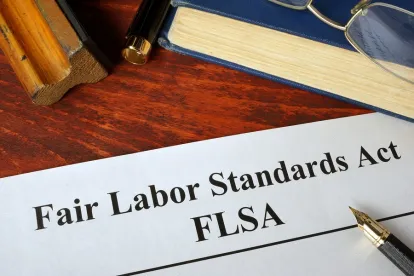The U.S. Department of Labor (DOL) recently announced a new pilot program, referred to as the Payroll Audit Independent Determination (“PAID”) program, which allows employers to conduct self-audits of its pay practices using the DOL’s compliance materials. If an employer determines its pay practices are not in compliance with the Fair Labor Standards Act (FLSA), or if an employer believes its practices are lawful but wishes to resolve any potential claims without the need for litigation, the employer may self-report the issue to the DOL’s Wage & Hour Division and certify it has changed the practice to comply with the FLSA. The DOL will evaluate the employer’s information and confirm the amount of back wages due to employees if any. The DOL will then issue releases of claims limited to any self-identified violations, which employees may sign to receive payment of any wages due. Employees are not obligated to accept a payment or sign a release of claims, so participation in the PAID program may not insulate participating employers from litigation. It is also unclear what impact participation in the PAID program might have on state-law wage and hour violations, which may have a longer statute of limitations than the FLSA. In addition, an employer that self-reports violations pursuant to PAID may invite further investigation from the DOL or other state agencies. For employees who choose to settle the employer-identified violation, the employer must pay the back wages by the end of the next full pay period.
The PAID program allows employers to avoid liquidated damages or civil monetary penalties for any self-identified violations of the FLSA. Further, the PAID program may be used to resolve inadvertent violations of the FLSA, such as failure to pay employees for off-the-clock work, the maintenance of unlawful comp time structures, or employee misclassification issues. Employers cannot conduct self-audits via the PAID program for claims that are already being investigated, nor can employers use the PAID program for repeat-violations.
The PAID program will be piloted for a six month period, so the DOL may adjust the parameters of the program at a later date. While participation in the PAID program may be beneficial to employers with inadvertent, minor FLSA violations, it may not be right for all employers. Employers that are interested in participating in PAID, or conducting an internal audit of payroll processes, would be wise to work with counsel. Stay tuned for further updates on the pilot program.



 />i
/>i
